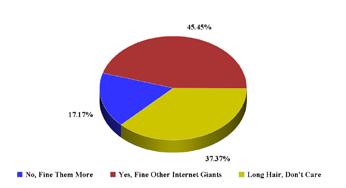
6 minute read
SOLO FOCUS
China’s 200 Million Singles are Shaping Businesses Models
By Barnaby Lofton
Advertisement
China reportedly has 200 million people, or 14% of its population, who are single, with businesses vying to capitalize on the large consumer group. The hashtag #中国超2亿人单身# (Over 200 million people in China are single) took the top spot for trending topics on the Chinese internet last month, with a flood of posts about why more people are opting for the ‘single life.’
One of the top comments noted, “Being single is sometimes an awakening. Marriage for the sake of marriage is never what I want. Some are icing on the cake. No one can live freely.”
A popular tech blogger on Weibo gave a fairly profound breakdown of the phenomenon in China. They posted, “There are many reasons why more and more Chinese people are single, but it can be summed up to these few [reasons].” They went on to list five reasons for the phenomenon: 1. The urban gender imbalance 2. More people staying at home, refusing to socialize 3. Society as a whole is less focused on getting married and having kids 4. The requirements for marriage are getting higher and higher 5. Internet is causing more people to drop out of society
CCTV Finance reports that because single people have no family burdens, they have “less awareness of savings than non-single people.” Unsurprisingly, Nielsen data shows that 42% of singles consume for pleasure compared to 27% for non-single people.
Statistics show that in first-tier cities, 40% of young singles are living in a ‘moonlight’ stage of life as they spend more money on themselves.
As the tier of the city lowers, monthly income decreases and the proportion of ‘moonlighters’ actually increase significantly.
A Xinhua article claims that single people are more willing to spend money to be ‘spiritually fulfilled.’ For example, a single Gen Z girl in Hangzhou went on a blind date for her cat and spent RMB10,000 to buy high-end pet supplies as a ‘dowry’ for her cat.
Businesses are taking note and changing their business models to accommodate this emerging market.
Fitness, tourism, cosmetics and pets are key industries to watch in this space.
Single-person dining tables, isolated from others, are popping up more and more to attract customers.
Luxury brands are also taking the hint and starting to cater to singles’ with more personalized products. Jing Daily, a Chinabased luxury consumer trends digital publication, notes that Jo Malone allows shoppers to create their own fragrance using any combination of 26 perfumes on Jo Malone London Tmall store.
From a worldwide perspective, Europe actually has the highest percentage of one-person households (OPH), with figures as high as 20-40%.
Lastly, let’s not forget that Alibaba’s Single’s Day last year raked in a whopping RMB372.3 million.
TAKE STOCK
TAP THAT APP
Zero
Summer is just around the corner, which means beach season is quickly approaching. For those who tapered off their New Year weight-loss resolutions in mid-February, you can look to Zero to help you get back on track.
Zero is one of the leading apps for fasting (we recommend consulting your doctor before fasting) and helps folks stay accountable to their goals. The userfriendly app has four main features – a fasting timer, a content library to learn more about healthy habits, a stat line that can be synced up with smartwatches and a journal to track your mood.
Zero is as straightforward as they come and can help declutter your health goals (unlike calorie-counting apps). Zero also offers premium content but truth be told – you’re probably better off with the basic version of the app.

> Zero is available on iOS and Android devices.
CHART ATTACK

Fair Fine?
Was Alibaba’s ¥18 Billion Penalty Fair?
Chinese regulators handed tech giant Alibaba a record penalty of RMB18.2 billion after a monthslong anti-monopoly investigation. State-run newspaper People’s Daily posted news of the penalty via Weibo saying that the State Source: Sina Tech Administration for Market Regulation (SAMR) assessed the fine for the company’s abuse of its favorable market position. The regulator said Alibaba forced merchants to list products on just one of two ecommerce platforms – with no option of choosing both, CNBC reports. The fine totaled the value of 4% of Alibaba’s 2019 domestic sales. In a WeChat poll on That’s Guangzhou, a majority of readers surveyed believe other internet giants should be fined. Over one-third responded that they just don’t care.
INSPECT-A-GADGET
Bottlecap Gun
If you’re like us, you enjoy spending money on trivial things from time to time (admittedly, not the best investment advice). With the weather heating up and the Coronas on ice, we’ve got a fun gadget that’ll make opening beers just as entertaining as any game of flip cup. This bottle cap gun takes a few tries to perfect, but once you get going the fun doesn’t stop. Just watch out for peoples’ faces when shooting caps as this Taobao gem packs some power.

HIGHS AND LOWS


Highs
• Chinese cinemagoers are showing out for national releases in 2021, with box office revenue exceeding RMB20 billion as of
April 18. The figure is close to matching last year’s total ticket sales, which were heavily impacted by the COVID-19 outbreak. While the year-on-year increase is to be expected, blockbuster films like Hi Mom and Detective Chinatown 3 have dominated the box office chart since the start of 2021, according to China Daily. The field has been led by domestic releases, while one foreign film, Godzilla vs. Kong, ranks fourth on the year with total revenue of RMB1.15 billion.
• Chinese enterprises are gaining further respect worldwide after recently outnumbering their counterpart US firms in the Fortune 500 List in 2020. The list includes 124 Chinese companies – 91 among them are state-owned enterprises. Analysts pointed out that China’s private firms are at an advantage to compete abroad due to its strong domestic market, while European companies are relatively struggling as key sectors are weakening, including new energy and telecommunications. • Business confidence in China reached a 10-year high, with the Purchasing Manager Index (PMI) surpassing readings of 50 in February. While export orders have slightly dropped, strong domestic demand has been a key driver in increases across many business categories, Forbes reports. • China set a new record for quarterly GDP growth, reporting an 18.3% jump in the first quarter of 2021 compared to the same quarter last year. The PRC managed to put the worst of the coronavirus outbreak in the rearview mirror by Spring 2020 and has consistently been a leader in economic growth over the past year. Chinese officials are still reminding folks to be vigilant, with a statement by the National Bureau of Statistics adding, “We must be aware that the COVID-19 epidemic is still spreading globally and the international landscape is complicated with high uncertainties and instabilities.”
Lows
• Alibaba has been in the headlines for all the wrong reasons as of late. After receiving an RMB18 billion fine by Chinese regulators for unfair market practices, the company is having to restructure its plans to act more like a bank than a tech company, BBC reports. While it’s good to see tech giants be held accountable, it could have been addressed earlier. • A significantly smaller fine than the folks at Alibaba, 360 Search was penalized RMB2 million for the use of fake advertisements in April. The fine was given by Beijing’s Administration for Market Regulation. The fake ads about medical products were exposed via a CCTV broadcast on March 15, which is International Consumer Rights Day. China
Daily reported that an investigation was opened on Qihoo 360, the headquarters of the search engine, and found the ads were not properly reviewed by the company.



